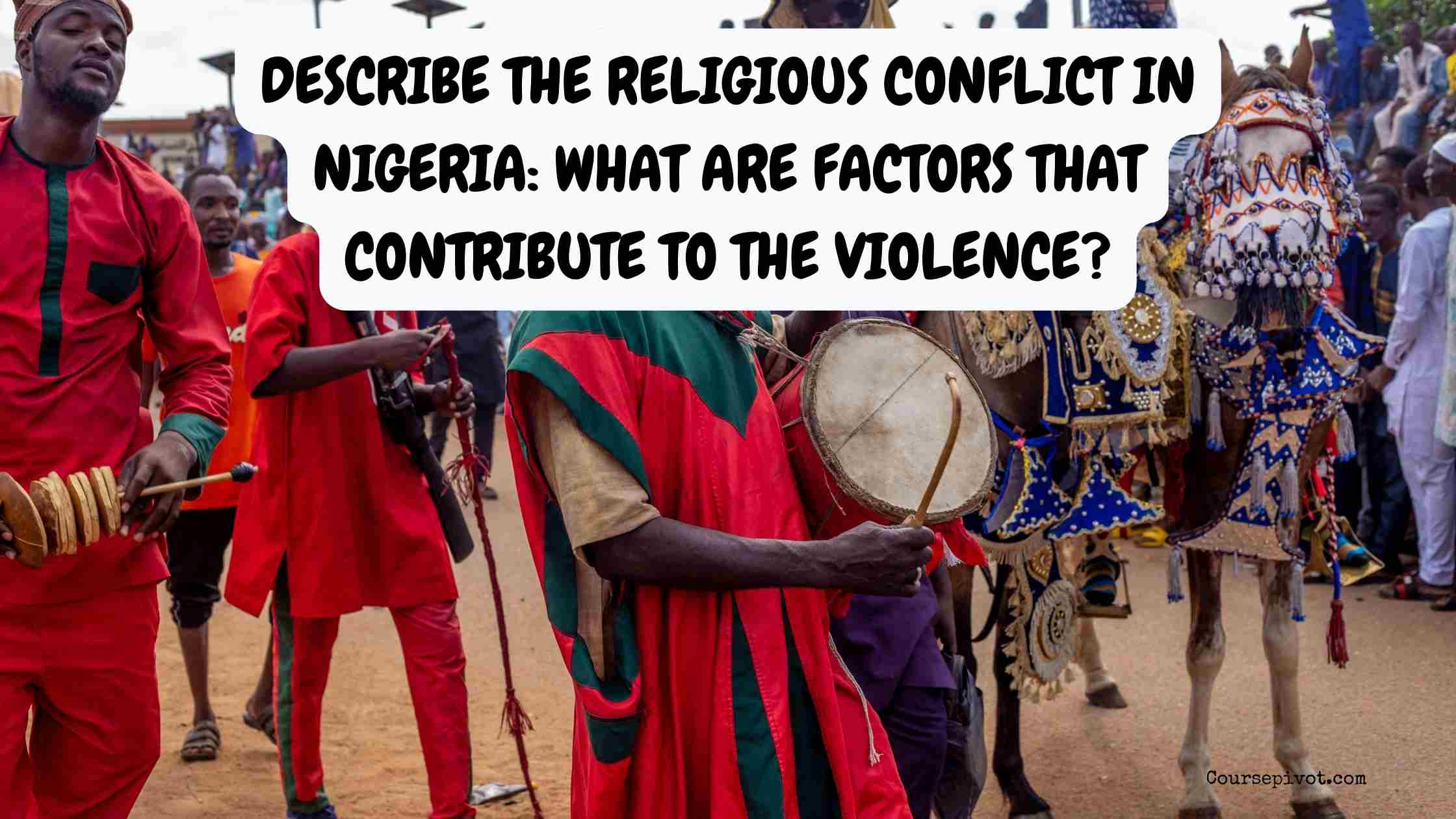
The Religious Conflict in Nigeria: What Are Factors That Contribute to the Violence?
Religious conflict in Nigeria is one of the country’s most persistent and complex challenges. While Nigeria is rich in culture and diversity, it has also been deeply affected by religious divisions—particularly between its Muslim-majority north and Christian-majority south. This divide has sparked waves of violence, mistrust, and political tension over the decades.
Table of Contents
But is religion the root cause—or just one piece of a larger puzzle?
Let’s explore the reality of religious conflict in Nigeria and the major factors that continue to fuel it.
🕌 Nigeria’s Religious Landscape at a Glance
- Muslims dominate the north, especially in states governed by Sharia law.
- Christians are largely concentrated in the south and central regions.
- A small minority practice indigenous African religions or blend faiths.
Despite constitutional protection of religious freedom, religious identity often determines politics, marriage, education, and access to resources.
🔥 What Drives Religious Conflict in Nigeria?
🔹 1. Historical Colonial Divisions
British colonial rule reinforced divisions by governing the north and south separately—preserving Islamic systems in the north while introducing Western education and Christianity in the south. This created two parallel societies that still struggle to integrate.
🔹 2. Ethno-Religious Identity
In Nigeria, ethnicity and religion often overlap. Conflicts that appear religious are often driven by ethnic competition. For example:
- Hausa-Fulani Muslims vs Christian minority tribes in the Middle Belt.
- Fulani herders (mostly Muslim) vs Christian farmers in rural areas.
These overlapping identities make conflicts harder to solve because they are not purely theological—they’re also social and tribal.
🔹 3. Political Power and Marginalization
Religion is often a proxy for political control. Many communities feel excluded or underrepresented, especially in mixed regions. Political elites exploit religious tensions to gain or hold onto power—turning religion into a weapon.
🔹 4. Extremism and Terrorism
Groups like Boko Haram and ISWAP have brought global attention to religious violence in Nigeria. Boko Haram, whose name roughly means “Western education is forbidden”, wants to establish an Islamic state in northern Nigeria. Their attacks have:
- Targeted Christian churches
- Destroyed schools
- Displaced millions
Their actions have intensified mistrust between communities and fueled a cycle of retaliation.
Read our blog on How Equality and Democracy Represent Traditional American Values
🔹 5. Land Disputes and Economic Strain
In central Nigeria (Middle Belt), conflicts over land and grazing rights often turn deadly. Climate change and population growth have worsened these disputes. While they are economic in nature, the different religions of the parties involved often give them a religious appearance.
A Muslim Fulani herder fighting a Christian farmer isn’t just about cows—it becomes a symbol of religious struggle.
🔹 6. Weak Governance and Impunity
The Nigerian government has struggled to prosecute religious violence, leaving many victims without justice. This lack of accountability leads to revenge attacks, deepening the cycle of violence.
🧠 Is Religion the Real Cause?
Not entirely. Religion in Nigeria is often the face of deeper issues—like:
- Poverty
- Lack of education
- Corruption
- Unemployment
These problems create fertile ground for manipulation by political, ethnic, or extremist groups.
🕊️ The Way Forward: Can Peace Be Achieved?
To reduce religious conflict, Nigeria must:
- Promote interfaith dialogue
- Reform land and resource policies
- Strengthen law enforcement and justice
- Encourage youth education and employment
- Address climate and displacement pressures
Peace won’t come from prayer alone—it must be built through justice, inclusion, and real reform.
- Read our blog on 10 Reasons That Explain Why Minority Groups Become Scapegoats
Understanding the Religious Conflict in Nigeria
To describe the religious conflict in Nigeria is to acknowledge that faith, identity, politics, and inequality all collide in a volatile mix. It’s not just about Muslims vs Christians. It’s about history, power, land, and survival—layered with religion.
While religion plays a major role in Nigeria’s violence, it’s often the symptom, not the disease. Addressing the root causes—inequality, weak institutions, and ethnic divisions—is essential to creating a future where Nigerians can live in peace, regardless of their beliefs.
Cite this article
You can copy and paste your preferred citation format below.
Martin, L. & Arquette, E.. (2025, May 27). The Religious Conflict in Nigeria: What Are Factors That Contribute to the Violence?. Coursepivot.com. https://coursepivot.com/blog/describe-the-religious-conflict-in-nigeria-what-are-factors-that-contribute-to-the-violence/



